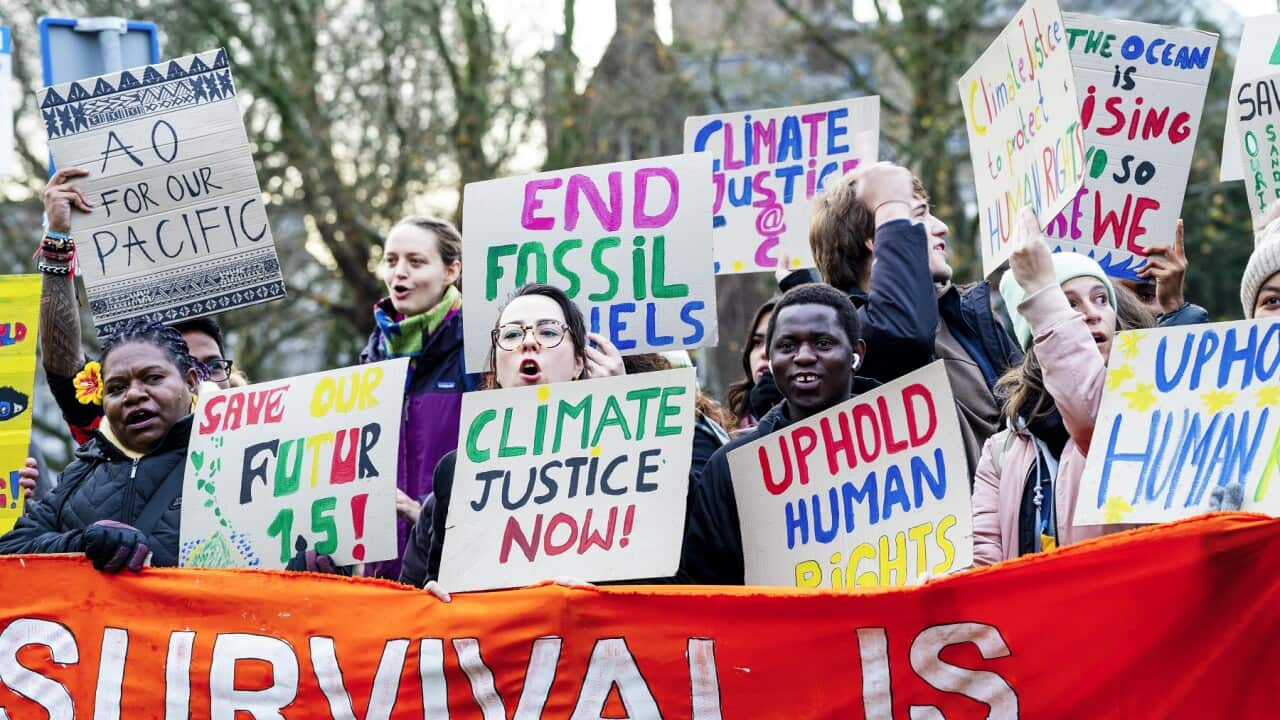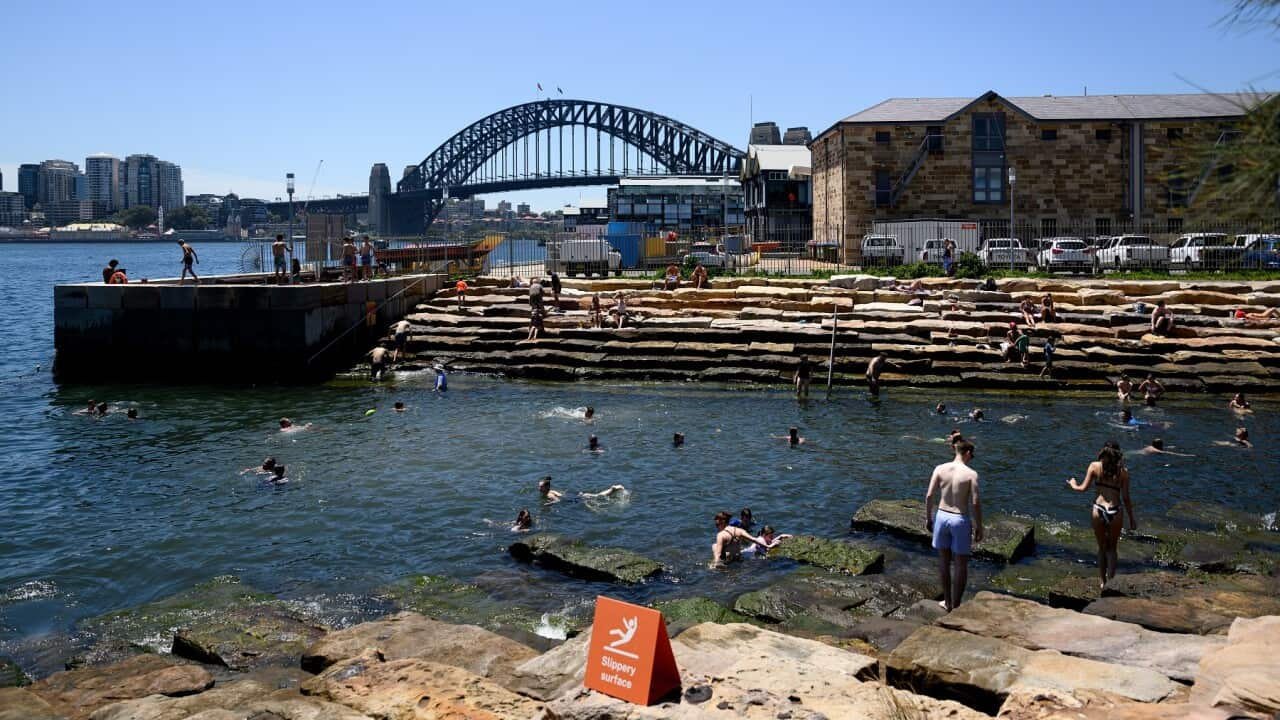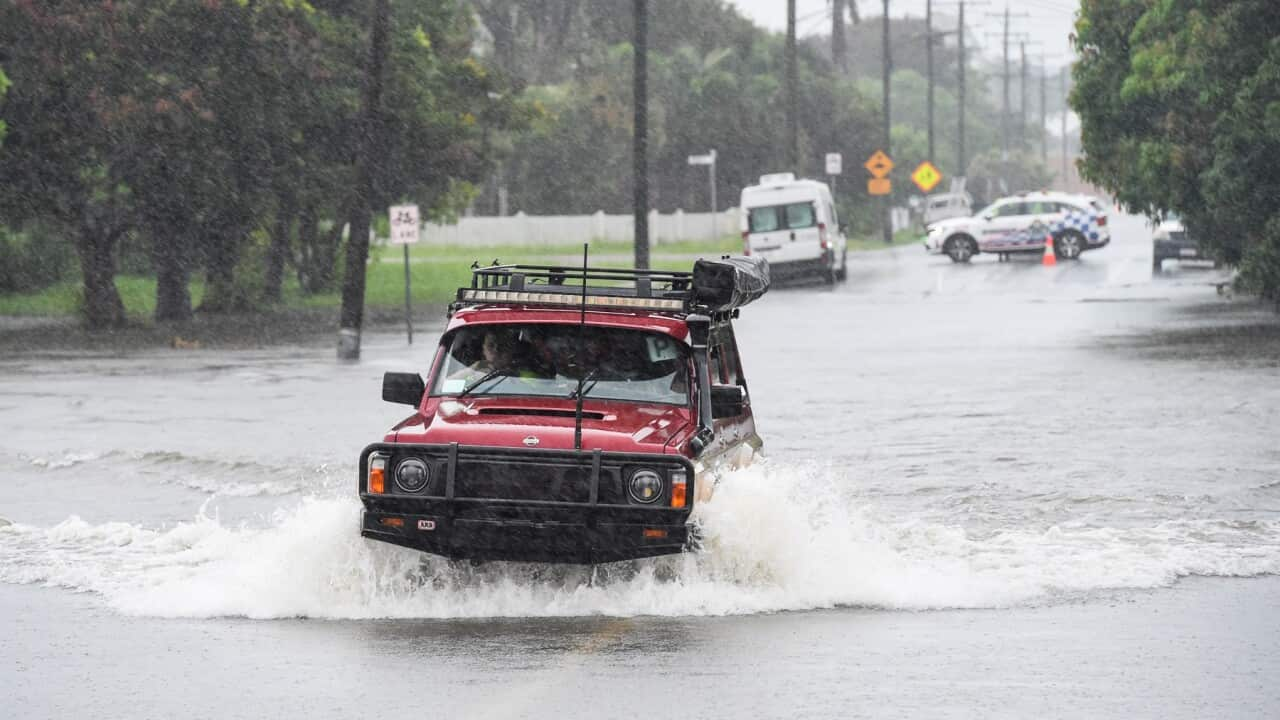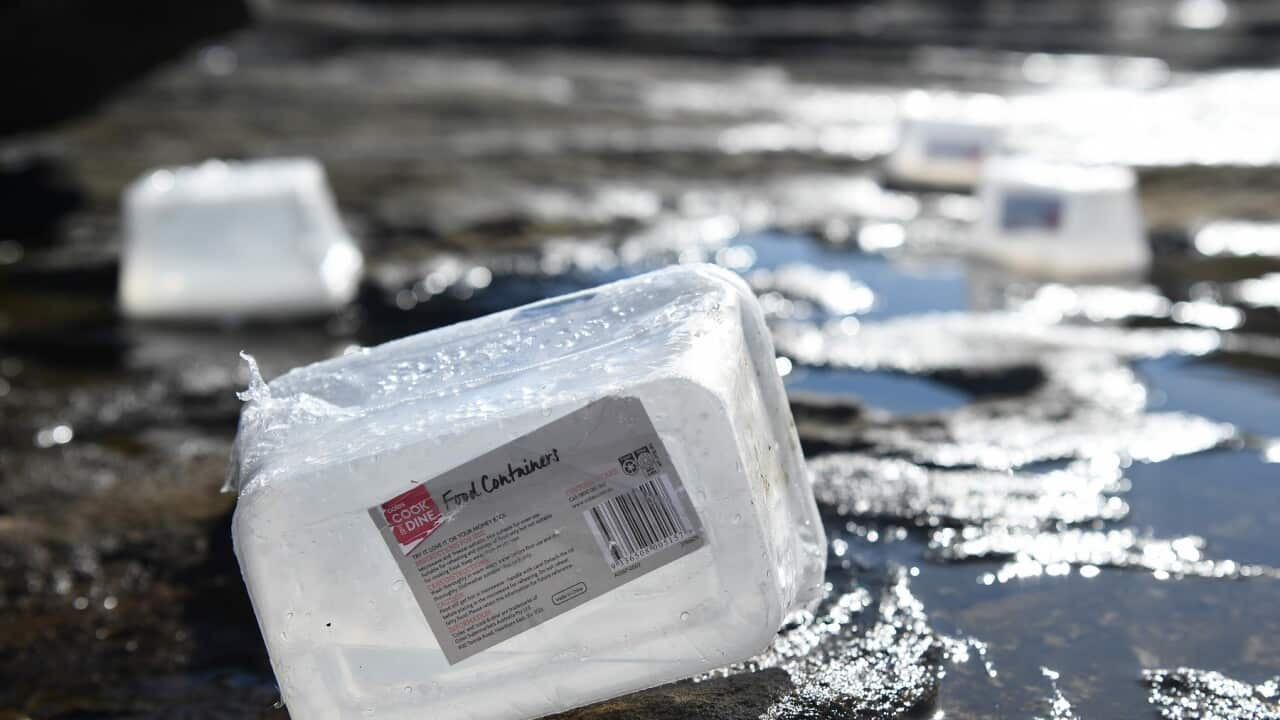TRANSCRIPT
The largest case ever held at the world's top court is underway.
Climate justice is under the spotlight and there are significant implications for Australia's fossil fuel industry.
The landmark hearings at the United Nations' International Court of Justice focuses on the legal responsibility of polluting nations to minimise the impacts of the unfolding climate crisis on developing countries, including Australia's Pacific neighbours.
Vanuatu is spearheading the legal effort from a group of small island states to get an advisory opinion from the ICJ that can be used to hold countries accountable.
This is Vanuatu's top legal officer, attorney-general Arnold Kiel Loughman, opening the hearings in the Hague.
"I have come before this court because domestic legal remedies are unable to address a crisis of this scope and magnitude. I have come to ask you to uphold the rule of law. Under international law states have obligations, obligation to act with due diligence to prevent significant harm to the environment, to reduce the emissions and provide support to countries like mine, to protect the human rights of present and future generations, to protect and preserve marine environments and to respect the fundamental rights of my people to self-determination in our own land. The failure by a small number of large-emitting states to fulfill these obligations constitutes an internationally wrongful act."
One of the large-emitting states Mr Loughman says has failed his people is Australia.
An August report from Climate Analytics revealed that Australia is responsible for about 4.5 per cent of global carbon emissions as of 2022 and is the third largest fossil fuel exporter in the world behind only Russia and the United States.
Australia has provided its submission to the UN's top court, which will also hear from another 98 countries and more than a dozen intergovernmental organisations over two weeks (2 Dec - 13 Dec).
This represents the largest lineup in the world court's nearly 80-year history.
Lawyer and general counsel for Greenpeace Australia and the Pacific, Katrina Bullock, told a webinar held by The Australia Institute that Australia has attempted to dodge further climate obligations in their submission to the court.
"So Australia did argue that the UNFCCC framework and the Paris Agreement are the primary sources of international obligations to address greenhouse gas emissions and government obligations under those treaties or other treaties or under international law should not extend beyond those frameworks. And that position is fundamentally flawed. It disregards decades of international human rights legal developments, and it directly contradicts the really powerful legal submissions we heard today of the Pacific, African and Caribbean nations."
The testimonies from countries on the frontlines of climate change include that of Vanuatu's special envoy for climate change and the environment, Ralph Regenvanu.
"Our peoples have built vibrant cultures and traditions over millennia that are intimately intertwined with our ancestral lands and seas. Yet today we find ourselves on the front lines of a crisis we did not create. A crisis that threatens our very existence and that of so many other peoples who have come in unprecedented numbers to be heard by this court."
Lawyer Katrina Bullock argues that Australia's current climate agenda is woefully insufficient.
"Australia's proposed pathway would see fossil fuel emission reductions be completely reliant on voluntary obligations and political negotiations, which we've already mentioned just don't work. We are not on track to meet the temperature goal of the Paris Agreement and to limit global warming to a level where we would be able to safeguard human rights."
The hearings have begun a week after the small island nations condemned a deal made at the UN's COP29 summit to provide AU$460 billion a year in climate finance as insulting and inadequate.
Shiva Gounden is a campaigner and Head of Pacific for Greenpeace Australia Pacific and is holding rallies outside the ICJ in the Hague.
He told The Australia Institute webinar this legal battle for climate justice only came about after a previous failed petition from Palau saw Pacific students take matters into their own hands.
"Quite a few years after that, in 2019, 27 law students who decided that if the leaders can't do it across the world, that they want to take this fight themselves of taking the biggest problem of climate change to the world's highest court, especially to seek an advisory opinion on how their human rights can be protected from climate impacts. But not just theirs, but future generations as well."
The student activists were able to garner support from Vanuatu's government, which then lobbied neighbouring countries to take the climate justice initiative to the UN General Assembly, paving the way for the ICJ case.
President of Pacific Islands Students Fighting Climate Change, Cynthia Houniuhi, has travelled to the Hague from the Solomon Islands for the hearings.
She told the world court's judges they have the power to seriously affect the lasting impacts of irreversible climate damage.
"As judges of the World Court, you possess the power to help us course-correct and renew hope in humanity's ability to address the greatest challenge of our time. And you can do this simply by applying international law to the conduct responsible for climate change."
The ICJ hearings run until December 13, with an outcome expected in 2025.
While the court's advisory opinions are not binding, they are legally and politically significant.
Experts say the court's eventual opinion will be cited in thousands of climate change-driven lawsuits around the world, including efforts from Pacific countries to seek damages for actions that have worsened the climate.
Greenpeace's Shiva Gounden says the court's determination could force Australia to curb fossil fuel exports as part of global efforts to avert climate catastrophe.
"It's not for individual states but rather what the whole world needs to do as one unified family in that sense. And that could have implications around exports. And it could have implications of what is really needed to be below that 1.5 degrees so that communities can really have hope to protect what they hold dear."













